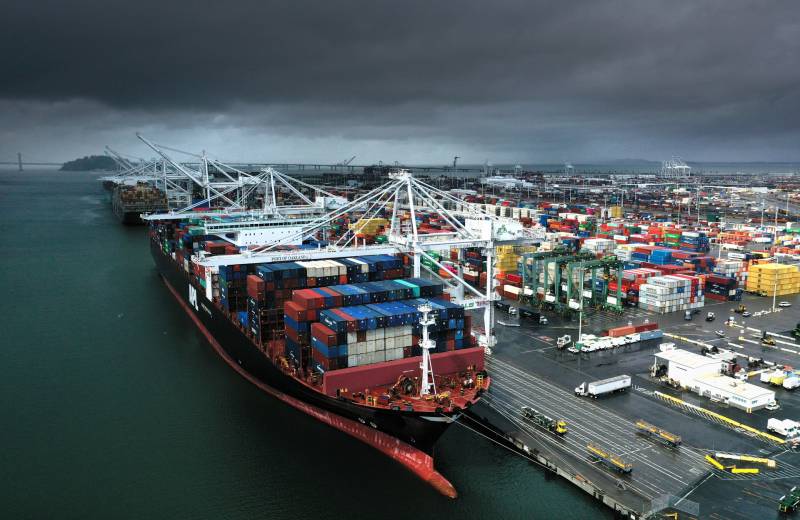Ports from Bellingham, Washington to San Diego, California, will not be processing cargo this Friday. Instead, workers from the International Longshore and Warehouse Union are spending the day protesting police violence and racism.
“With the ILWU’s history of advocating for the end of police terror and violence we decided to put a call out,” said Trent Willis, president of the ILWU Local 10 in San Francisco.
The date is no accident. Friday is Juneteenth, a holiday commemorating the end of slavery in the United States. Local 10, Local 34 and the African American Longshore Coalition pushed for the coordinated shutdowns this week.
“It is urgent that unions respond to the racist upsurge,” Willis and Keith Shanklin, president of Local 34, wrote in a letter to William Adams, national president of the ILWU. “In fact, it is a matter of life and death.” Adams is the first Black president of the ILWU.
Friday’s demonstration is the latest protest actions taken by the ILWU. Historically, dockworkers refused to process cargo from apartheid-South Africa throughout the 1960s, 70s, and 80s. The ILWU also led antiwar protests at the Port of Oakland in 2003, which turned violent and led to the arrest of several people. In 2008, workers shut down West Coast ports in protest of the war in Iraq.

